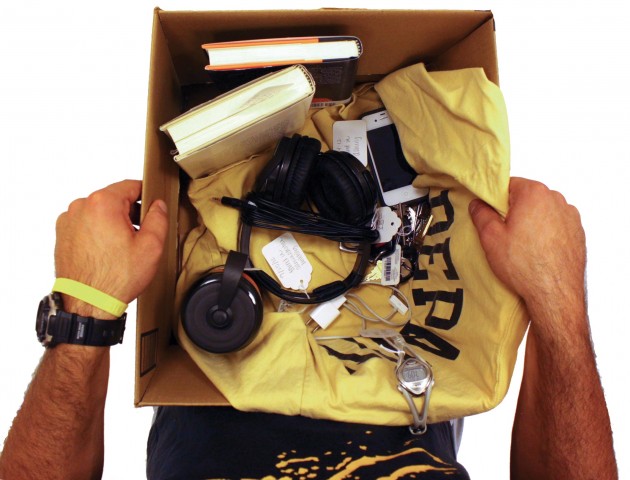
Many recognize the panicky feeling that accompanies losing something; the fear that car keys, a cell phone or even an ugly glove is gone forever. Luckily, there is a good chance that someone will pick up what has been forgotten and take it to the home of all missing objects: the lost and found.
For some, the lost and found at DePauw can be a challenge to find in itself. There are currently multiple locations around campus where lost and found items are stored, including the Lilly Center, Roy O. West Library, Asbury Hall and the Hub.
English professor Jean Everage manages the lost and found in Asbury, which consists of a drawer in the Academic Resource Center (ARC). Everage said items found in the Asbury bathrooms are often brought to the "unofficial depository" in the ARC. Items can be recovered by talking to Everage herself or by speaking with whomever is working at the ARC desk at the time.
Everage has found several valuable items, including cell phones, wallets and even a passport. She successfully reunited the passport, which was left in a copier, with its owner. In addition to higher-value objects, Everage has also seen more obscure items.
"Interestingly enough, I found a pair of pants on the couch," Everage said. "A student must have emptied out his bag and left it there."
In addition to the pants, Everage said another memorable find was a graphing calculator. She posted the information in the lost and found section of e-Services but no one claimed the item. Everage ended up giving the calculator to the Q-certified tutors who could benefit from using it during their tutoring sessions.
"People must have money to throw away," Everage said.
Another location where lost and found items are kept is outside of the Lilly Center fitness room. The glass case, labeled "lost and found," holds the clothing that is later donated to Goodwill during the fall and spring breaks and at the end of each semester. Electronics, student IDs, keys, jewelry and other small items are kept behind the student worker desk.
Linda Williamson, Public Safety dispatcher and switchboard operator, said items from Lilly are only kept there for a short period of time before they are transferred to the Public Safety office to be tagged and documented.
According to Angie Nally, director of Public Safety, the Public Safety office serves as the primary collection place for found items, which often include keys, phones, IDs, clothes, books, umbrellas and glasses. Since the Public Safety office is open 24 hours, individuals are able to report or retrieve lost items at any time.
While Nally said Public Safety wants to be central lost and found, she is aware that other buildings and departments also collect items with the thought that people will return to where they last remember seeing their respective items.
"Sometimes that can be confusing for students," Nally said. "I think it's not exhaustive to check in Public Safety, but it is a good place to start."
Despite their efforts to reconnect people with their belongings, Public Safety is not always successful.
"It's hard when someone loses something like a jump drive and their paper's on it, and they're really anxious," Nally said. "We want to help them find it, but that doesn't mean we always can."
Nally said managing the lost and found is "a lot more give than take" and that she's had several fun experiences. She once helped to reunite a DePauw alum with his class ring that he had lost while clamming in Michigan several decades earlier.
While individuals are encouraged to contact Public Safety about their lost items, Nally said it is "perfectly fine" for students to post messages and on e-Services. According to Adam Hughes, director of administrative information systems, there have been over 400 posts made on e-Services about lost or found items since August 2009.
"The more eyes that are out there looking for their property, the better," Nally said. "So I think it's just kind of a joint effort of several different ways to find stuff."
Public Safety tries to coordinate lost and found items with the libraries and other locations, and Nally said most lost items eventually end up in the Public Safety office. Items remain in the office for an entire school year before they are donated or disposed of during the summer.
Items left in the ARC are eventually donated to Goodwill, but are occasionally thrown out. Everage often tries to find some use for these objects because most of them stay in the drawer for extended periods of time.
"I don't know how to make [the lost and found system] more effective," Everage said. "But I do think that it would be better if there was one spot on campus, specifically the Public Safety office."
While Williamson said a central location would be easier, freshman Paul Clarke said he thinks the current system is fine.
"It would be inconvenient for a student to have to travel to a different location than the one that they lost it in," Clarke said.
Regardless, many items still remain in all of the various lost and found locations on campus. However, there is no worry until the end of the year when students and faculty will have to say goodbye to their items when they are donated.
- Margaret Distler contributed to this article.


